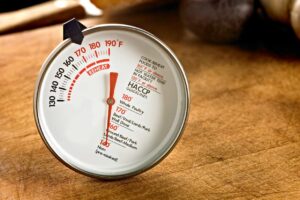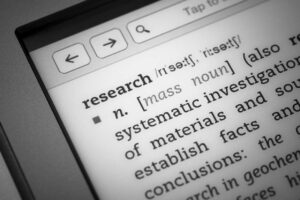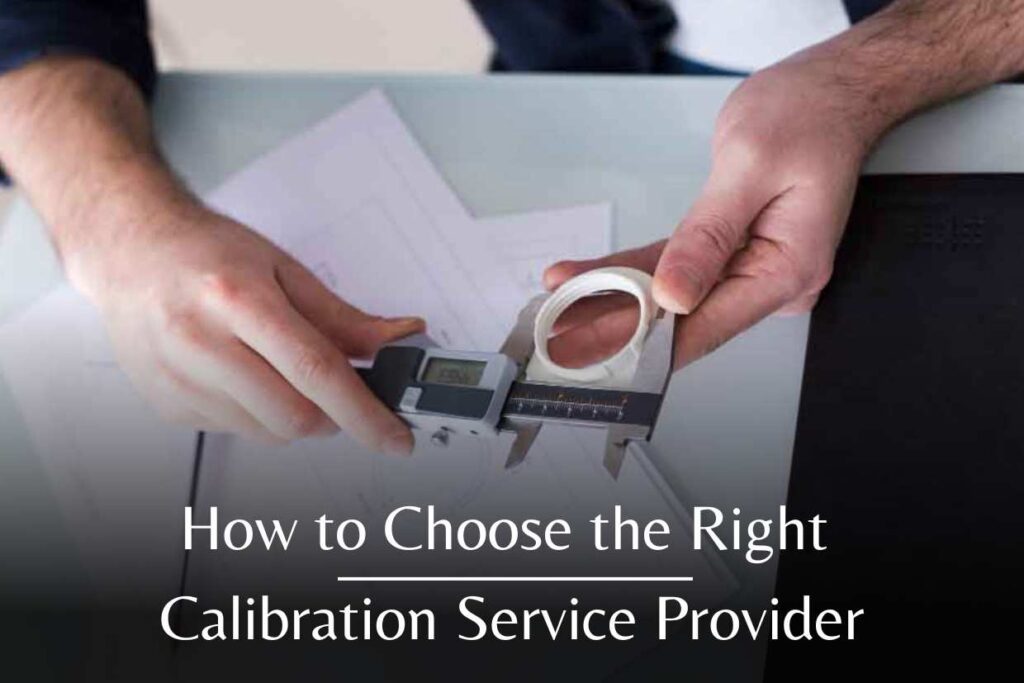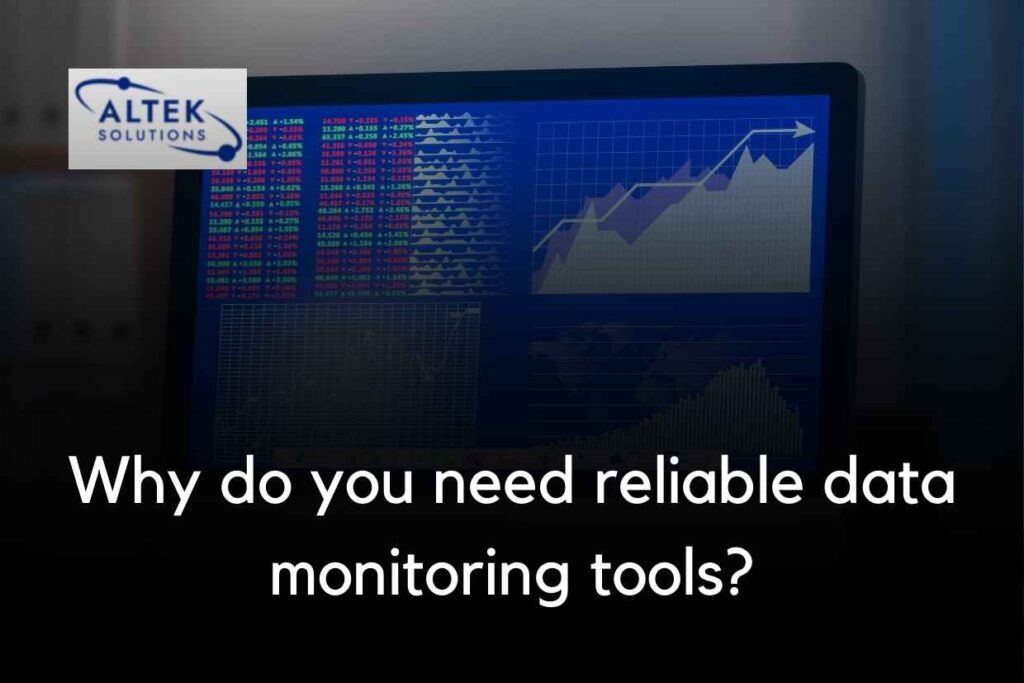Finding a reliable calibration service provider is one of the most critical supply chain decisions for any company that relies on precise measurement equipment. If you’re tasked with keeping your company’s equipment and process measurements accurate, you want to avoid any figurative explosions from using faulty meters or scales. Plus, those scary regulatory auditors ask about calibration paperwork an awful lot.
So, while sprucing up your calibration program may be outside your bucket list, picking the right partner to handle this critical yet mind-numbing work is key. Think of it like choosing a contractor to renovate your kitchen – you want qualified pros to trust to get the job done right. The catch is that sifting through all the calibration companies out there is a significant pain. If you just pick one randomly out of the phone book, you may end up with technicians who show up late, break stuff, and calibrate about as well as a kindergartner.
Lucky for you, We are here to make your search easier with this handy guide to navigating the wild world of calibration services. Just follow these not-so-calibrated tips to find the ideal calibration service provider to help ensure you choose the right one
Get Clear on Your Internal Calibration Requirements.

The first step is to understand your internal calibration requirements fully. Write down what equipment in your facilities needs routine testing and calibration to maintain quality standards. Everyday items that require calibration include
- Pressure gauges and transmitters
- Temperature sensors
- Weighing scales
- Torque wrenches
- Callipers, micrometres, and other precision measurement tools
- Material test equipment like hardness testers
- Electrical testing devices such as multimeters
- Flow meters
- Balances and scales and much more
Note each device’s quantity, calibration schedule, required tolerances, and specifications. This calibration needs analysis will provide a clear picture of the scope of work so you can determine if a potential provider can handle your volume and variety of devices.
In addition to the equipment, note any internal processes, standards, and regulations you must comply with through proper calibration. For example, ISO 9000 or ISO/IEC 17025 accreditation may be required. Understanding your internal requirements and external compliance regulations will enable you to assess whether a provider has the capabilities, quality standards, and certifications to meet your needs.
Research Your Calibration Service Providers.

With your internal calibration requirements documented, start researching the variety of Calibration Service Providers in your region. Cast a wide net by poking around online, checking local directories, and asking colleagues for recommendations on providers they use and trust. List several potential vendors to investigate further and find the gems!
As you research options, look for calibration companies that service businesses in your specific industry, such as manufacturing, healthcare, energy, aerospace, and more. They will be more familiar with equipment used in your field and have technical expertise related to your operations. Also, seek out providers with experience calibrating the types of unique devices and ranges specific to your facilities. Avoid firms that only offer general calibration services and lack specialised expertise.
Dig into the capabilities of each prospective calibration firm by checking their website, brochures, and other marketing materials. What specific devices, tolerances, calibration frequencies, and industries can they service? Do they have a diverse team of skilled technicians? What standards and accreditations do they comply with? Do they provide transparent pricing? The more detailed information a provider offers upfront, the better sense you’ll get of their competencies.
You can also request quotes from Calibration Service Providers outlining their pricing structure and service offerings. While cost shouldn’t be the sole determining factor, having pricing information helps assess value as you compare providers. Just be wary of unrealistically low quotes that may indicate a lack of expertise or poor quality.
Ask Around About Reputations.

When researching calibration service providers, your industry colleagues can provide valuable insider perspectives. Reach out to your network and peers at other facilities to get their input on the service providers they use.
Ask targeted questions like…
- How long have you used this calibration provider, and what led you to choose them?
- What is their technical expertise like in our specific field?
- How would you describe the quality and consistency of their service?
- What differentiates this provider from others you’ve used previously?
- How responsive is their customer service and tech support?
- Do they deliver substantial value relative to cost?
- Should we consider using them?
This peer insight goes beyond surface-level marketing materials and can help narrow down the top few providers worth evaluating. If multiple colleagues vouch for a particular calibration service provider, it indicates they may be well-suited for your needs.
Deeply examine the Reputations.
Once you’ve compiled a list of potential calibration firms to evaluate, the next step is thoroughly vetting their reputation and capabilities. There are several ways to verify calibration service providers before choosing one.
- Request and check client references – Any reputable company should provide multiple references upon request. Speak directly to current clients about the provider’s expertise, timeliness, reporting, and overall service quality.
- Search online reviews – Look for ratings and detailed reviews on sites like Google to get unfiltered client feedback on a calibration service provider’s strengths, weaknesses, and service experiences. Beware of firms with many negative reviews.
- Review sample reports – Ask potential calibration service providers to show sample calibration reports/certs so you can evaluate the quality, accuracy, content, and compliance. Reports should contain detailed test data, standards, environmental conditions, uncertainties, and technician/equipment details.
- Assess quality processes – Ask about their specific calibration, equipment maintenance, staff training, data integrity, and quality control processes to confirm they align with your standards.
The goal of vetting is to verify that a calibration service provider has a proven history of delivering high-quality calibration services that meet your requirements. Taking the time for in-depth reputation screening reduces the risks of partnering with a scam provider.
Compare Pricing Transparently.

Okay, let’s get to the money talk. Calibration services vary widely depending on equipment types, frequency, and other factors. Make sure any quotes you get from prospective providers are apples-to-apples comparisons so you can accurately assess value.
Be wary of quotes that seem ridiculously low – that likely signals inexperience or cut corners you’ll pay for later. And don’t automatically choose based on pricing alone – factors like responsiveness and expertise are just as crucial as cost in the long run. The goal is to find the optimal balance of service quality and fair rates that provide real value. As with most things in life, you get what you pay for when it comes to calibration.
Evaluate Their Range of Calibration Services.
Not all calibration service providers offer the same range of services and capabilities. As you assess potential partners, determine how well their service offering aligns with your needs in areas like…
- On-site vs. off-site calibration: Do they perform calibrations at your facility, handle them at their lab, or offer both?
- Mobile calibration – Can they dispatch technicians with mobile calibration equipment to your locations?
- Equipment types covered – Do they have documented expertise in calibrating all your measurement devices? Avoid firms that only handle essential calibration.
- Measurement ranges – Can their equipment and standards support the specific measurement ranges needed to calibrate your devices properly?
- Tolerance adherence – How well can they calibrate equipment to your required tolerances? Get documentation on their accuracy capabilities.
- Volume capacity – Do they have the capacity, technicians, and capacity to handle all your calibration workload without delays?
- Specialised services – Any unique needs like calibration kit rentals, data analytics, asset management software integration, etc?
The best calibration service providers will provide clear documentation on service capabilities so you can confirm they fully meet your organisational needs. Having gaps in any of the above areas can create headaches.
Check the Ease of Scheduling and Communication.
Scheduling and constant communication are key aspects of an effective calibration program. Evaluate how responsive and organised the potential calibration service providers are during initial inquiries and assessments. How quickly do they provide the requested information? How flexible is their schedule? How clear are their communications?
Look for real-time visibility into their availability through online scheduling systems or mobile apps. Quick email responses and fast follow-up calls are also positive indicators of solid customer service. Try scheduling imaginary calibration service calls to test responsiveness and experience their process first-hand. Clear communication and getting equipment calibrated according to specific timeframes and compliance deadlines are green flags, and disorganisation is a red flag. Disorganisation may point to potential issues down the road.
Evaluate Calibration Management Technology.

Today’s calibration providers should offer more than testing services – they must provide robust technology to simplify calibration management. Look for calibration service providers that use cloud-based software, data analytics, mobile apps, and other digital tools to enhance services. For example, cloud-based portals give 24/7 access to calibration records, reminders, and scheduling. Mobile apps allow greater efficiency for on-site technicians. Data analytics help track asset performance over time. And integrations with enterprise systems like CMMS enable seamless data exchange.
The billing model should also be flexible. Only pay for the specific technology capabilities your team will use and benefit from regularly. The ideal calibration service provider will feel less like a vendor and more like a strategic partner focused on your success. Rather than just selling services, true partners take the time to understand your business, goals, and pain points thoroughly. They don’t just react to service requests; they proactively identify opportunities to improve your calibration program and compliance.
In summary,
Finding a suitable calibration service provider takes time and diligence. Avoid choosing based on price alone. Weigh all the factors covered here to identify the best fit for your business. With rigorous evaluation guided by these tips, you can partner with a provider who delivers quality work and helps maintain compliance, efficiency, and productivity through proper calibration. And that’s a win-win for your operations.





